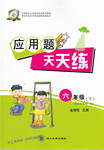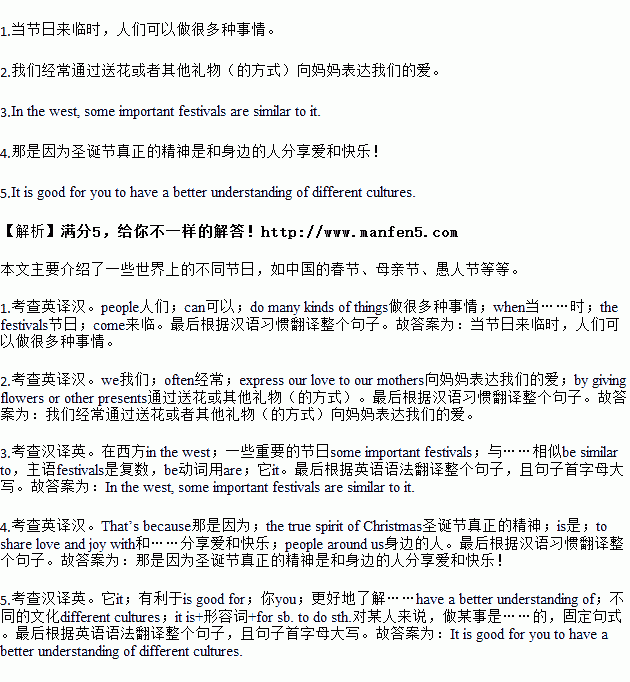题目内容
阅读下面的短文,将画线的句子译成英文成中文。
There are many different festivals in the world. 1. People can do many kinds of things when the festivals come.
The Spring Festival is the most important festival in China. On that day, Chinese people often perform lion and dragon dances. And they also eat dumplings with their family members while watching Spring Gala. The second Sunday in May is Mother’s Day. 2. We often express our love to our mothers by giving flowers or other presents. April Fool’s Day is a funny festival, because you can play some small tricks on your friends and they can’t be angry with you. Anyway, June 1st is a dream day for all the kids around the world because it’s Children’s Day. On that day, they can get their favorite toys and have fun with their friends.
3.在西方,一些重要的节日和它也很相似。 Thanksgiving is one of them. It’s an idea of giving thanks by having a big meal at home with the family. The main dish of this meal is always the turkey! Many people prefer Halloween. They make themselves look scary by dressing up as ghosts or black cats. The festival might not fit old people. It’s kind of terrible! However, more people celebrate Christmas. They often eat together and give presents to each other. 4.That’s because the true spirit of Christmas is to share love and joy with people around us!
If you want to know more on festivals in the world, you may want to get this book: The Dictionary of Festivals by J.C. Cooper. 5.它有利于你更好地了解不同的文化。 What are you waiting for? I promise you will get a lot you are dreaming of.
1.__________________________________________________________________________________________________________
2.__________________________________________________________________________________________________________
3._________________________________________________________________________________________________________
4._______________________________________________________________________________________________________
5.________________________________________________________________________________________________________
 应用题天天练四川大学出版社系列答案
应用题天天练四川大学出版社系列答案


